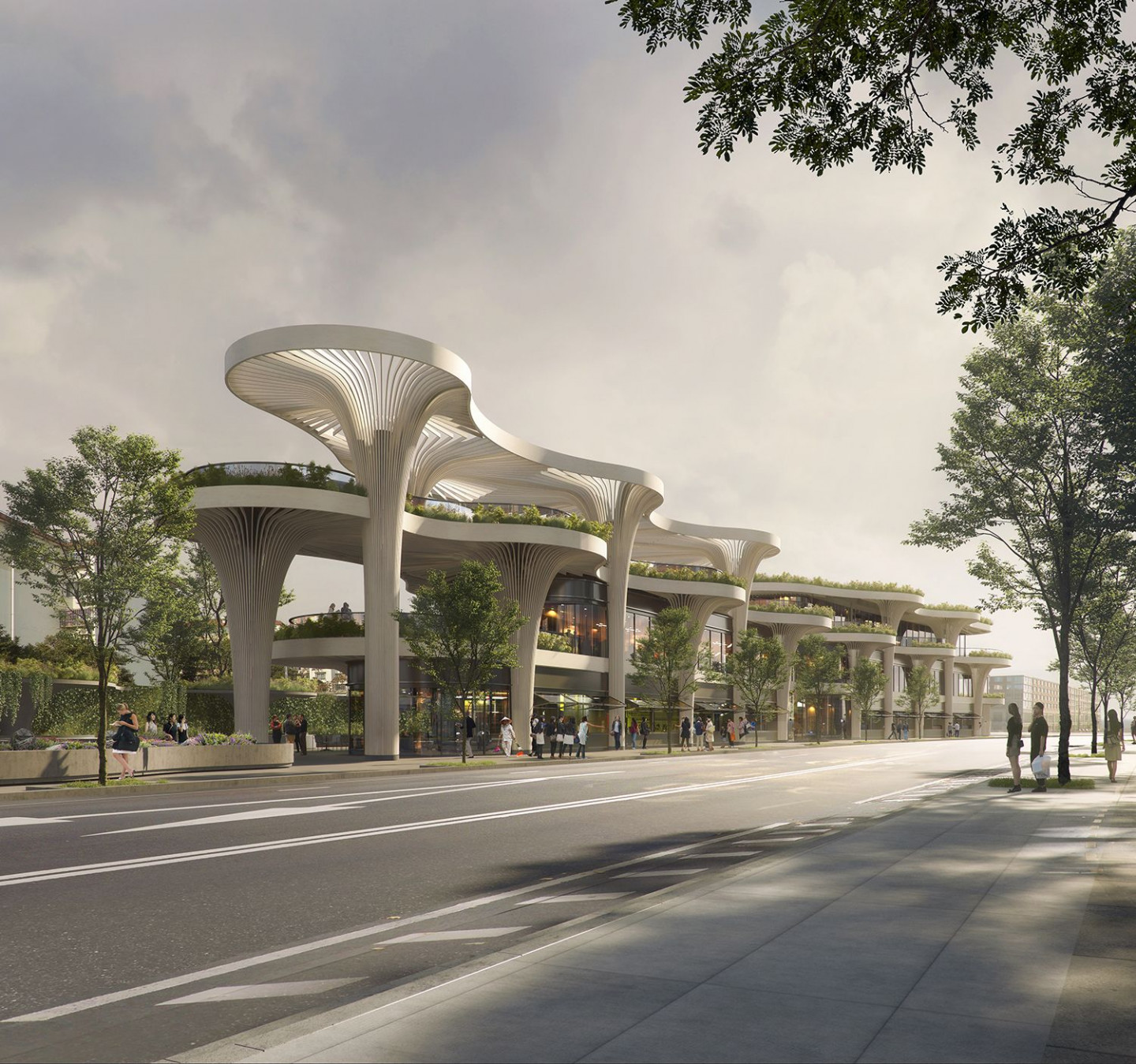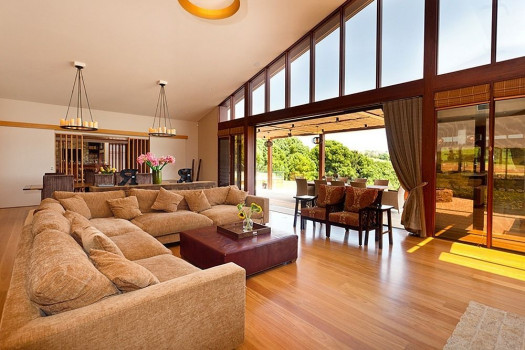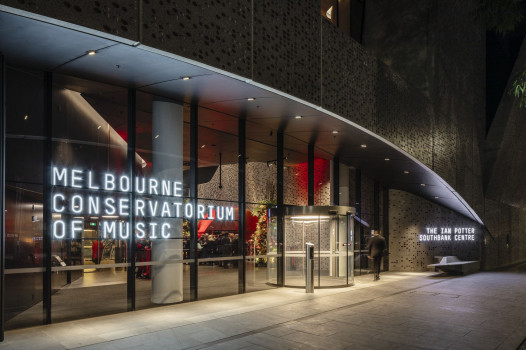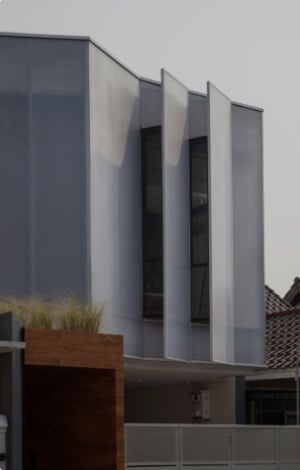Solar Trees Marketplace



Solar Trees Marketplace is Koichi Takada Architects latest project in China, located in the Minhang district, 20 kms south-west of Shanghai. The three-story mixed-use development will serve as a gateway to the new Shanghai Tian An Caobao Road Area Residential Masterplan by Tian An China. The overall floor area of 3,450 square meters will accommodate modular market stalls. Currently, under construction, the development is due for completion at the end of 2021.
Inspired by the rich landscape and forests of Shanghai, thirty-two architectural ‘trees’, rise from the ground to form a canopy of timber branches above the marketplace. Echoing the green spine that connects the 155,000 square metre residential master plan, the forest concept also references China’s commitment to be Carbon Neutral by 2060, setting a new green benchmark for mixed-use residential developments.
Introducing a unique landscape to the Minhang district, Solar Trees demonstrates it is possible, through a nature-inspired approach, to transform one of the world’s most polluted and congested urban environments into a healthier and more sustainable place to live.
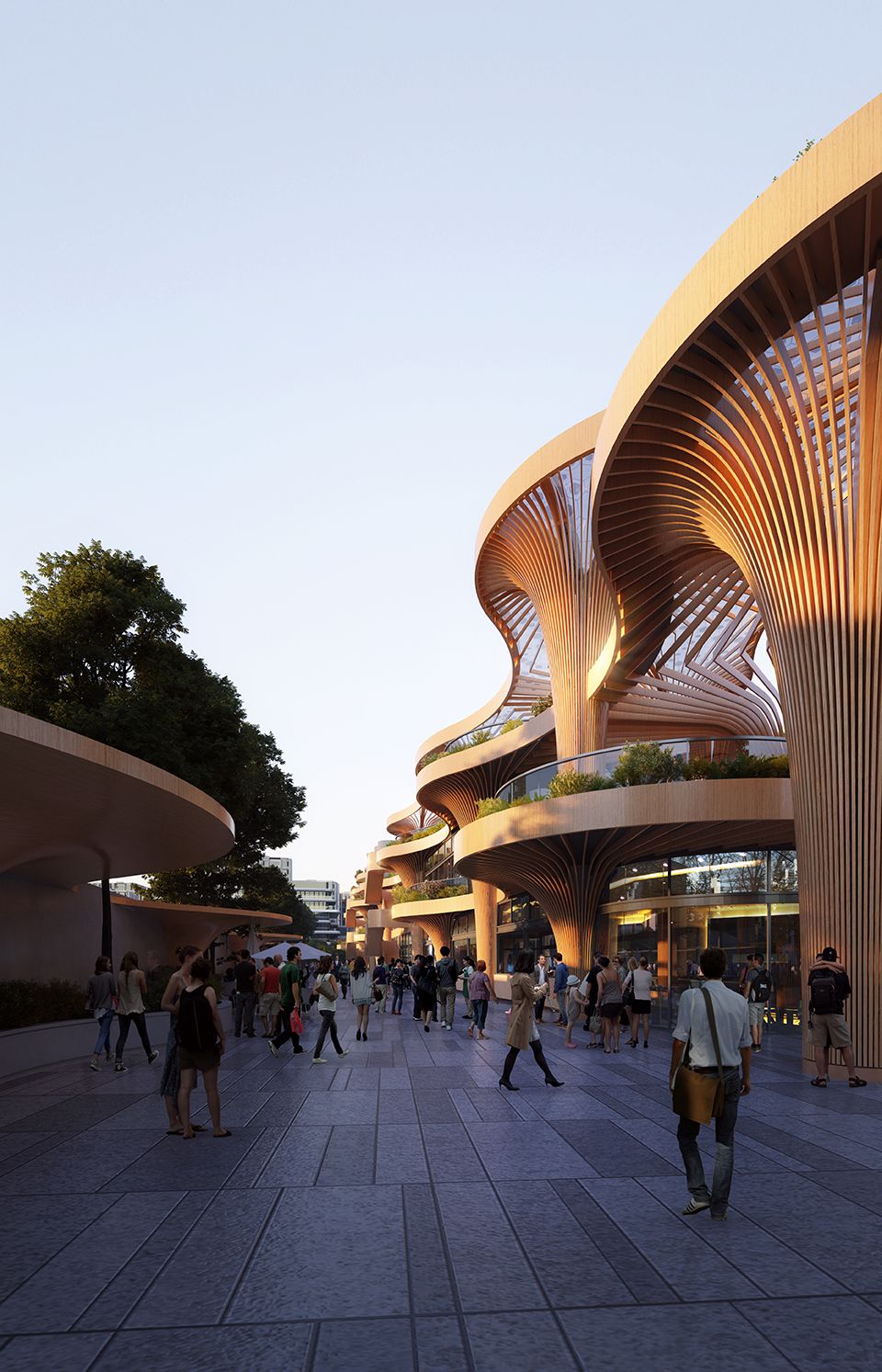
Engagingly Green Architecture
Distinguished by its biophilic structure, Solar Trees incorporates considered environmental and sustainable design initiatives. The timber branches and leaves of thirty-two man-made trees sit above the footpath to provide shelter and shade, while allowing natural light and fresh air to permeate the marketplace.
Solar panels on translucent canopies generate power for the development and provide a visual cue to Tian An China’s green agenda.
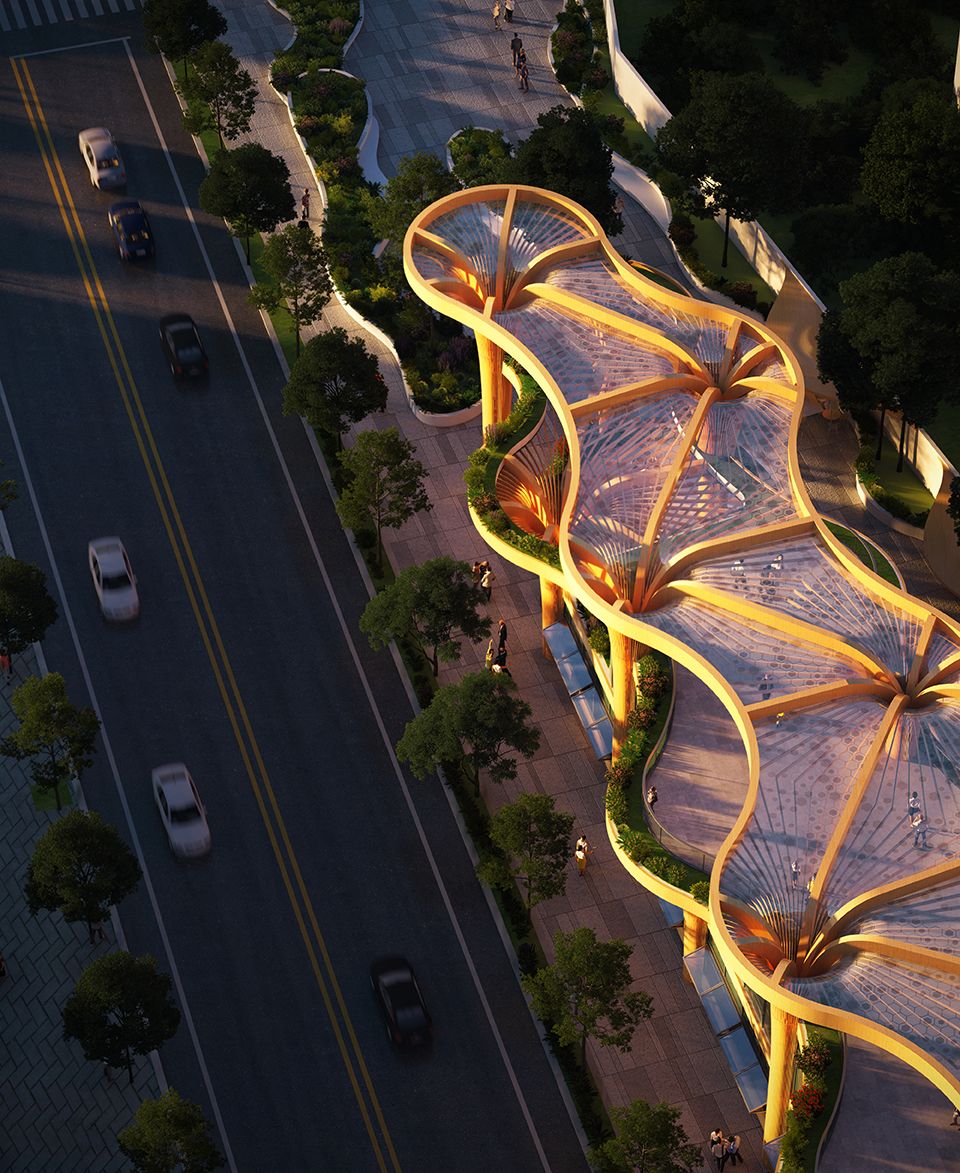
A future for traditional Chinese marketplaces
The inclusion of modular market stalls will bring a sense of authenticity to the contemporary development, referencing their history as social and cultural gathering spaces and allowing a new generation to gather at its heart. Reflecting the Chinese tradition of making guests feel at home - bīn zhì rú guī – the marketplace will generate a powerful sense of community and integrate the private and public domains.
A Boulevard of Native Trees
Fifty camphor trees planted outside welcome the beginning of the green corridor that runs through the masterplan. Three thousand trees and shrubs indigenous to Shanghai, including white Magnolia (Shanghai’s city flower), Ginkgo, Camphor and Celtis Sinensis create a new and significant park. Colour coding of different plantings also acts to identify and distinguish neighbourhoods within the masterplan and offers a guide for residents to find their way home.
The marketplace becomes an extension of the natural landscape, the solar canopy filtering the sunlight to allow people to enjoy the health and wellbeing benefits of shopping outdoors.
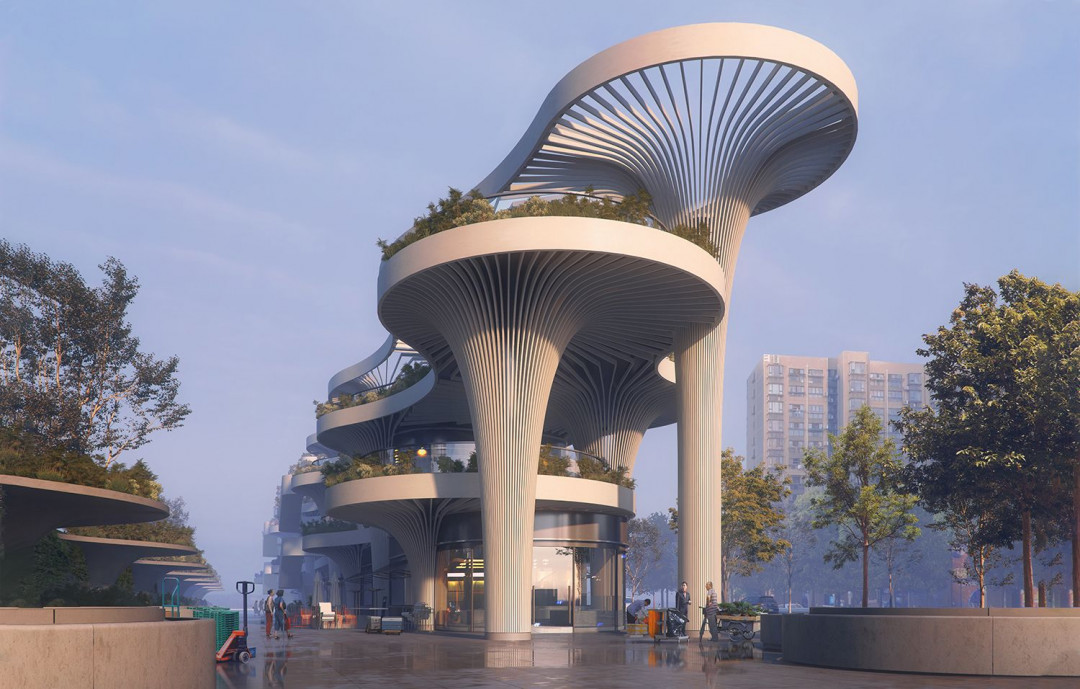
"We want to humanise buildings in the district, to be more engaging to the public and contribute to the regeneration of communities and their neighbourhoods. We want architecture to celebrate cultural identity, along with encouraging pedestrian activities and a more walkable and liveable city." - Koichi Takada (Principal)
This article originally appeared in koichitakada.com




 Indonesia
Indonesia
 Australia
Australia
 Philippines
Philippines
 Hongkong
Hongkong
 Singapore
Singapore
 Malaysia
Malaysia


